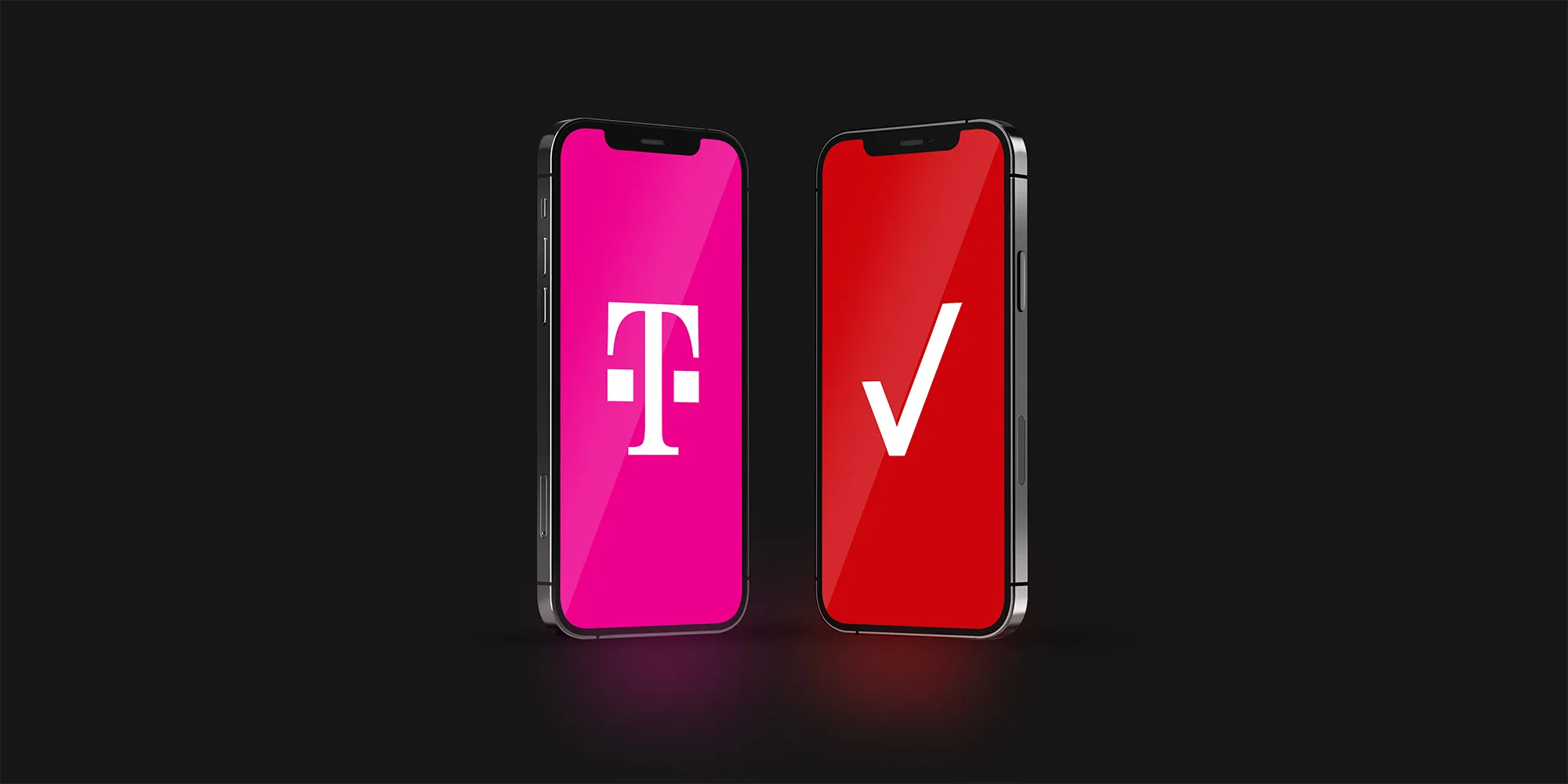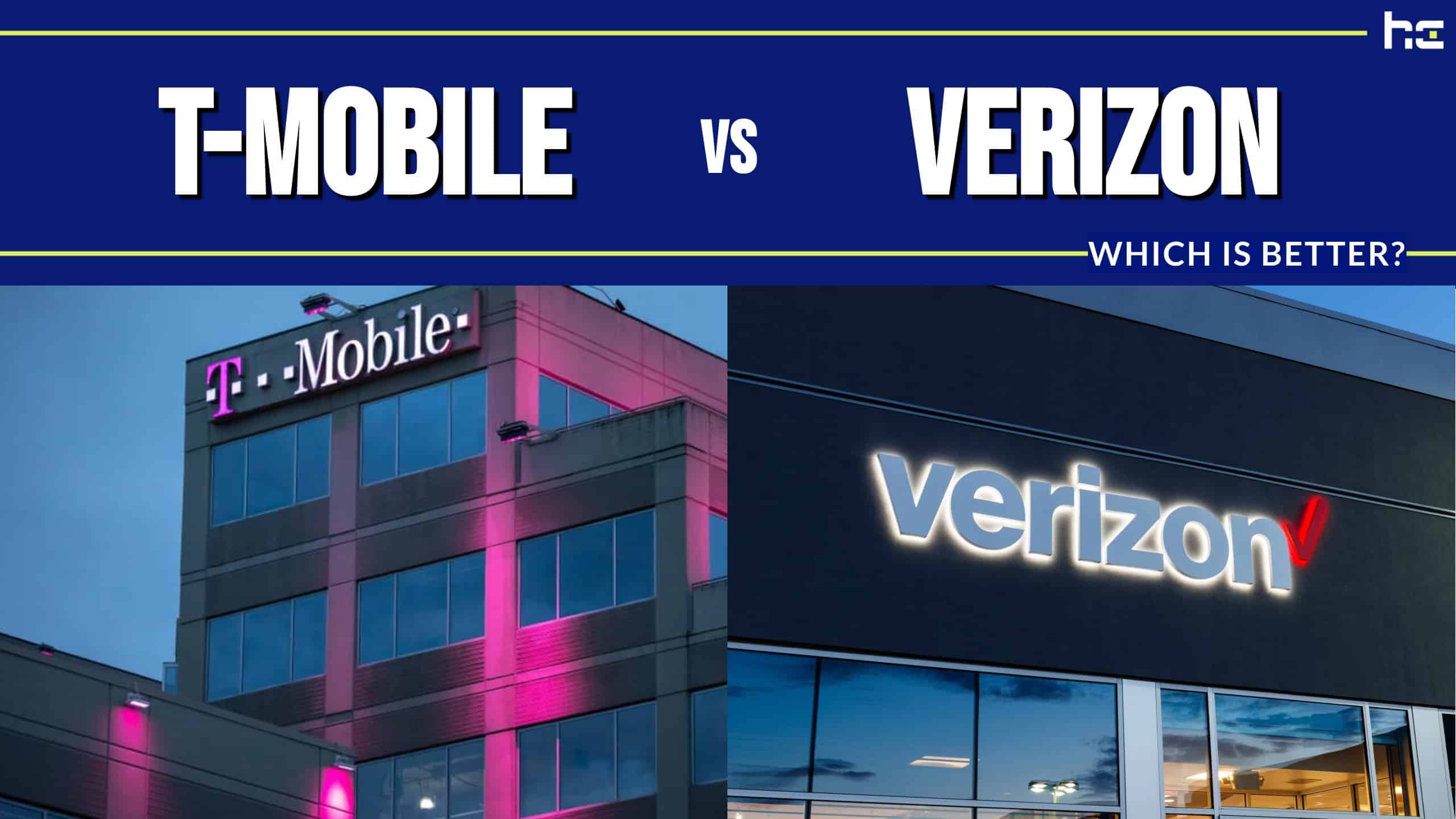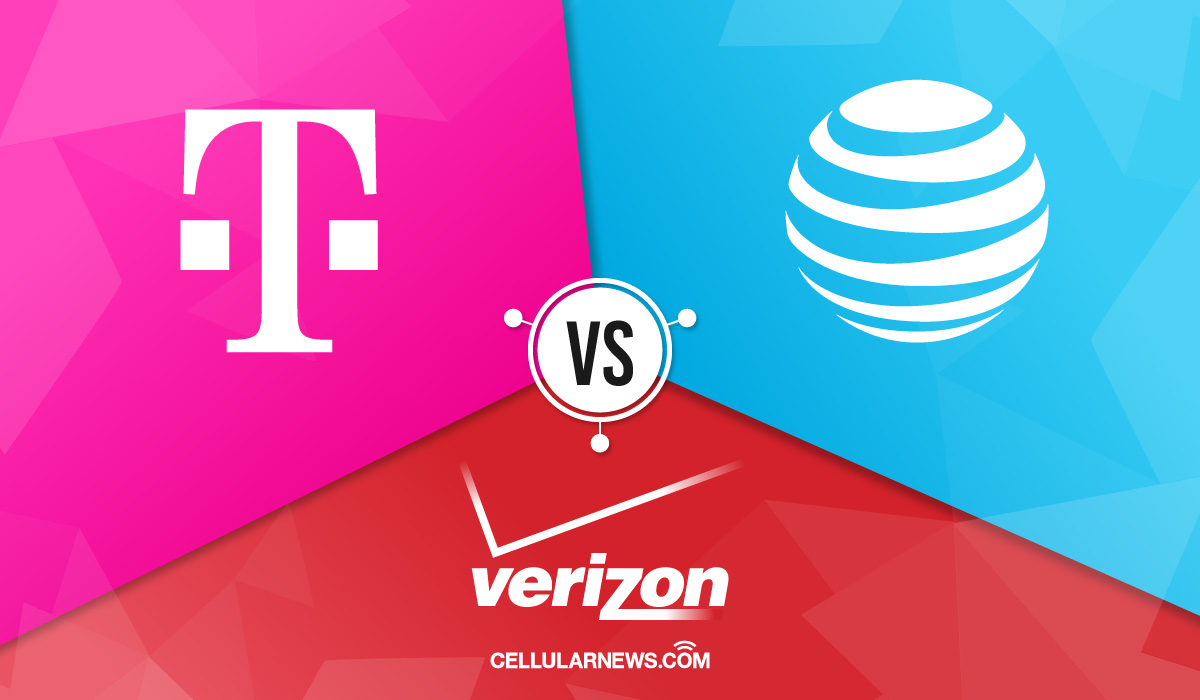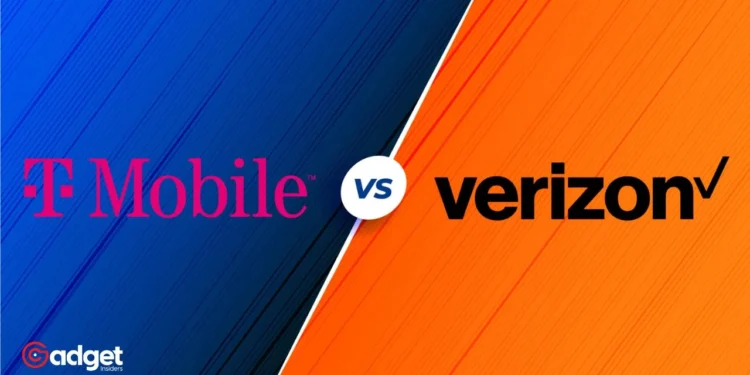T-Mobile vs Verizon – Whis is the best mobile carrier? As we have stepped in 2024 the old debate gets a new life. In the ever-evolving world of mobile carriers, the decision between T-Mobile and Verizon is more relevant than ever. With T-Mobile’s recent merger with Sprint catapulting it into a stronger competitive position, and Verizon consistently maintaining its status as a top player, consumers are left pondering: which carrier is the best fit for their needs?
This detailed comparison dives into various aspects such as price, coverage, perks, features, and phone selections to help you make an informed decision.

T-Mobile vs Verizon: Deciphering the Plans, A Price-to-Price Comparison
T-Mobile’s Pricing Edge
T-Mobile offers a range of plans – Essentials, Magenta, Magenta Max, and various Go5G options – with prices starting as low as $25 per line for four lines under the Essentials plan. The carrier stands out for its affordable packages, especially for families or groups. Magenta and Magenta Max plans, priced at $70 and $85 respectively for a single line, offer a balance of price and features, appealing to a broad spectrum of users.
T mobile vs Verizon on my iPhone at Publix in Waynesville NC on the main road through town pic.twitter.com/oACmeT8iSU
— ⚙️ Mike, cyberowners.com (@TeslaTruckClub) August 27, 2022
Verizon’s Competitive Pricing in Mid and High Tiers
Verizon’s plan structure, though less varied, includes myPlan Unlimited Welcome, Plus, and Ultimate, with its cheapest plan starting at $60 for one line. The carrier slightly edges out T-Mobile in the mid-tier pricing with its Unlimited Plus plan. At the high end, Verizon’s Ultimate plan, starting at the price of $75 for one line, becomes more appealing when considering four-line packages and the extra features.
T-Mobile vs Verizon, Coverage Showdown: 4G LTE and 5G Networks
T-Mobile’s 5G Leadership
While trailing behind Verizon in 4G LTE coverage, T-Mobile shines in its 5G rollout. Thanks to its low-band setup, T-Mobile’s 5G network covers greater distances, positioning the carrier as a leader in next-generation connectivity.
Verizon’s 4G Dominance and 5G Expansion
Verizon boasts a robust 71% nationwide 4G LTE coverage, outpacing T-Mobile in ensuring connectivity in rural areas. Although its mmWave 5G setup has limited reach, Verizon’s recent expansion into Nationwide 5G signals its commitment to broadening 5G access.

The Battle of Perks: T-Mobile vs Verizon
T-Mobile’s Rich Array of Inclusions
T-Mobile distinguishes itself with a variety of perks across its plans. From Netflix and Apple TV+ subscriptions in its higher-tier plans to the T-Mobile Tuesdays program offering weekly deals and discounts, the carrier ensures added value beyond basic connectivity.
Verizon’s Paid Perks
Verizon, on the other hand, adopts a different strategy by offering perks such as the Disney Bundle, Apple Music, and Cloud Storage for an additional $10 each. This approach provides flexibility but may increase the overall cost for users who desire these extras.
T-Mobile vs Verizon, Device Selection: A Diverse Range for Every User
T-Mobile’s GSM Advantage
T-Mobile’s GSM framework allows a broader selection of devices, including those from OnePlus, giving customers a wide array of choices for their preferred technology.
Verizon’s CDMA Selection and Motorola Affinity
Though limited by its CDMA setup, Verizon maintains a strong selection of devices, including a unique bond with Motorola, catering to brand-loyal customers and those seeking specific device features.

T-Mobile vs Verizon: Your Ideal Carrier
The choice between T-Mobile vs Verizon hinges on individual needs and preferences. T-Mobile emerges as the more budget-friendly and 5G-forward option, whereas Verizon leads in 4G coverage and offers a different approach to plan perks. With this comprehensive comparison, you’re now equipped to make an informed decision that aligns with your mobile needs and lifestyle preferences. Remember, the perfect carrier for you may differ from others, so consider all factors before making your choice.









